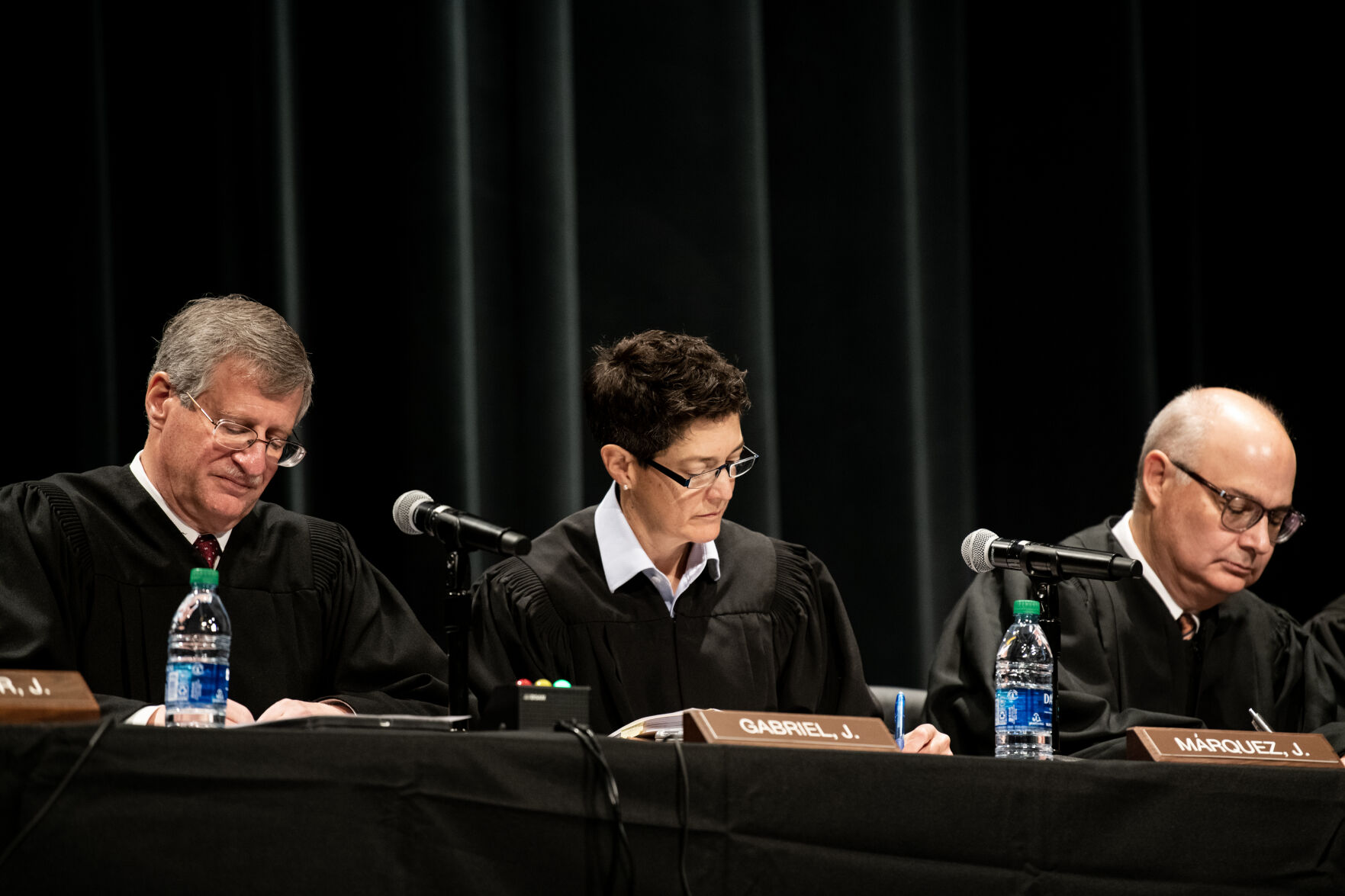Colorado Supreme Court ponders where to draw line on sex offenders living with child relatives

The Colorado Supreme Court on Wednesday grappled with how to ensure a convicted defendant’s relationship with a minor family member is protected, while at the same time allowing courts to impose no-contact directives with children as part of sex offender probation.
Following his Adams County conviction, Abdullahi Salah lived with his sister and her infant child, despite the terms of his probation forbidding him from contacting children with whom he did not have a “parental role.” The state’s Court of Appeals agreed Salah violated his probation because he had not demonstrated that the “nature of his relationship” with his nephew was parental.
Turning to the Supreme Court, Salah argued the appellate decision did not explain how Salah could have proven a parental relationship with his nephew or when the relationship would gain constitutional protections. During oral arguments, some members of the court seemed similarly unsure of the specifics.
“If we’re talking about an infant, I don’t know, do we start to assess how many diapers you’re changing?” wondered Justice William W. Hood III. “It’s not like you’re going to help the kid with homework and take him to ball games or something.”
“I certainly recognize that not all families meet a nuclear mother-father-child sort of setup. We have blended families. We have families blended through marriage. We have LGBTQ families,” said Justice Monica M. Márquez. “Where is the line properly drawn here?”
Ultimately, she added, how can the court write a rule “that recognizes that diversity, but also recognizes the concern that you have sex offenders potentially in contact with possible future victims?”
Jurors found Salah guilty in 2018 of sexually assaulting a teenage girl, among other offenses. He received sex offender probation for 20 years to life, with a prohibition on contacting or living with children. There was an exception for those children with whom he had a parental role.
After sentencing, Salah’s probation officer alleged Salah violated those terms by moving in with his sister and her infant. Salah countered there was no reason to believe the crime against his female victim would make him a danger to a 1-year-old male child.

Then-District Court Judge Roberto Ramirez heard testimony that in Salah’s Somali culture, families are “always close and help each other.”
However, Ramirez found “no evidence before this court that as it relates to defendant and his nephew, that there is a parental-like role.” He agreed Salah violated his probation, reinstated the original sentence and added 90 days in jail.
A three-judge panel for the Court of Appeals cautioned that for “parent-child relationships,” the right to familial association can be infringed upon if there are compelling circumstances. But a defendant on probation has no unconditional right to live with family members generally.
“Salah had no parental or custodial role with his nephew, and he otherwise failed to demonstrate the nature of his relationship with his sister and nephew,” wrote Judge Jerry N. Jones.
Before the state Supreme Court, Salah leaned heavily on Moore v. City of East Cleveland, a 1977 decision of the U.S. Supreme Court that overturned a local ordinance governing which types of relatives could live in a household. Because the U.S. Constitution prevents the government from “forcing all to live in certain narrowly defined family patterns,” the court recognized a protection for relatives outside the nuclear family who live together.

Colorado’s justices, however, noted the case’s limitations. First, a majority of the U.S. Supreme Court ultimately failed to coalesce around that reasoning. Also, the case involved “an existing family setup that the state was trying to break up, as opposed to the creation of a new family unit, which is what we have going on here,” Márquez pointed out.
“Does this need to be a constitutional issue for you to win?” Justice Richard L. Gabriel asked Salah’s attorney. “It seems to me like there is a potential challenge here to the condition on its face that it wasn’t necessary. … Here, the crime didn’t deal with an infant male.”
Justice Carlos A. Samour Jr. suggested the court may need to do more than reiterate the categories of relationships the Moore decision suggested had constitutional protection – aunts, uncles, cousins and grandparents.
“Does culture enter into it? Whether the culture is such that it encourages, maybe, people living together even if they’re not related by kinship?” he asked.
Deputy State Public Defender John Plimpton warned that any further inquiry into a genuine biological relationship would be ill-advised.
“I think the consequences of that approach are very troubling, where you have individual judges making subjective determinations about the quality of different relationships to decide whether they’re constitutionally protected,” he said.
The case is Salah v. People.














